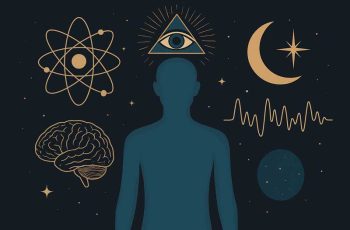Depersonalization of self is one of the most subtle yet painful experiences of modern life, the quiet erosion of identity beneath the constant demand to perform. In a world obsessed with visibility, we learn to exist for the gaze of others, not for our own presence. Between filters and captions, the human soul becomes content, the body becomes stage, and being itself is edited for approval. What remains when every version of the self is public, polished, and detached from its origin?
We live in a time when the aesthetics of exposure have defeated the ethics of interiority. The culture of spectacle has turned human experience into a vast stage, where the individual is no longer a being but a character in constant performance. The authentic self gives way to the edited one, cropped, filtered, scripted.
And I, as an artist and observer of this time, feel it almost painfully. I find myself trying to silence the urge to perform while still feeling the pull of a system that insists on being fed. It’s as if, even knowing what’s happening, I must remind myself every day that I am not content.
The Depersonalization of Self: The Age of the Curated Self
In the age of social media, everything becomes display: pain, love, grief, achievement, lunch, spirituality. It’s not enough to live, one must narrate, illustrate, react.
Emotion seems real only when performed. But what does that say about us?
There was a time when silence was where the self could be found. Now, it’s in the noise of notifications that identity takes shape. Self-construction — once a process of introspection and time — has become an act of self-curation: a polished feed, a strategic bio, daily stories as proof of existence.
Being has turned into branding. The individual becomes a product, and subjectivity, a marketplace. This depersonalization of self marks a shift from essence to image, from inner life to digital validation.
The Performance of Vulnerability
And that’s where the danger lies. Because even vulnerability has become performance. There is an aesthetic of shared pain, of calculated confessions, of the teardrop caught live because it drives engagement. It’s staged vulnerability, a display that mimics depth without necessarily touching truth. Pain that sells is more valued than pain that transforms.
I’ve caught myself doubting my own pain simply because I didn’t know how to communicate it. As if it only became legitimate once posted. As if grief didn’t exist unless it had a caption. That’s cruel.
And it comes at a price: depersonalization of self. When the self becomes a character, it drifts away from itself. Excessive representation creates emptiness. The constant mediation between what we feel and what we show creates noise, disconnection. Many only realize it when silence finally comes and they no longer know who they are without applause, likes, or external validation.
The Body as Stage, the Soul as Audience
The body, within this logic, stops being a home and becomes a stage. Shaped to fit the frame, the filter, the other’s desire. Image precedes presence. And this affects especially women, artists, and anyone whose image has long been a currency of value or recognition.
When everything is image, the invisible, soul, desire, contradiction, disappears. The body becomes the last frontier of performance. And the self, exhausted from acting, forgets what it means to inhabit the body rather than advertise it.
I say this as a woman, as an artist, as someone who has shaped her body not only through diets or clothes, but through poses, angles, and strategic silences. I’ve been my own emotional marketing director. And I’ve learned it costs the soul dearly.
The Digital Persona and the Death of Depth
We are living in a time of hyper-identification with roles. What once was symbol has become total identity. There’s no longer a gap between who we are and what we represent. The culture of reaction, of instant opinion, of constant social vigilance prevents thought from deepening. Everything must come fast as a meme, a statement, a take. Thinking too much has become weakness. And that empties thought itself.
In this perpetual noise, silence feels dangerous. And yet, silence is what we crave. It’s the last sacred space in a world obsessed with visibility, the antidote to depersonalization of self.
The Erosion of Interior Life
The interior world used to be sacred the territory of reflection and mystery. Today, it’s just another domain of productivity and content. Even our emotions are optimized for visibility. What once belonged to philosophy or poetry now belongs to algorithms and marketing teams. The soul, once a temple, has become a notification center. And perhaps the most radical act of rebellion today is to reclaim interiority: to feel without publishing, to think without performing, to exist without proof.
The Weight of Constant Visibility
Visibility comes at a price. Anxiety, comparison, and fatigue are the new symptoms of hyper-exposure. Being “someone” online means never being allowed to disappear. Fame, even the small, algorithmic kind, is an invisible prison. And this is where pop culture stops being entertainment and becomes a mechanism of social control.
Not because anyone forces us to be here, but because we’ve learned to enjoy being watched. That pleasure feeds the ongoing depersonalization of self we all sense but rarely name.
The Return of Silence
Maybe we’ve reached the turning point, where silence becomes revolutionary. Where refusing to perform becomes an act of resistance. To feel again in internal time, not in audience time. To inhabit the body, not just sculpt it. To listen more than to display. Because to be is far more than to appear.
This is not a manifesto against exposure, it’s an invitation to presence. To reconnect with what escapes the lens. To reclaim the inner space where there is no character, only person. To find the courage to be enough, without script, without performance, without audience.
Depersonalization of Self: Existing Without a Caption
We live in an era that celebrates self-expression but fears authenticity. We share everything, but connect with almost nothing. And while we claim to “be ourselves,” we spend our lives editing what that means. Depersonalization of self is the silent crisis of our age, a collective loss disguised as progress. But the path back exists.
It begins with the simplest, most radical thing left to do: to exist quietly.
I keep trying, to be more presence than persona. Maybe the true self lives precisely where the camera cannot reach.And maybe the greatest act of courage today is simply to exist without a caption.
More soul, more stories, right this way:
- Pop Culture as Modern Mythology: What Our Idols Say About Us
- The Invisible Mother: Rediscovering Identity Beyond Caregiving
- The Influence of Pop Culture on Art – Cinema, Music, and Painting


